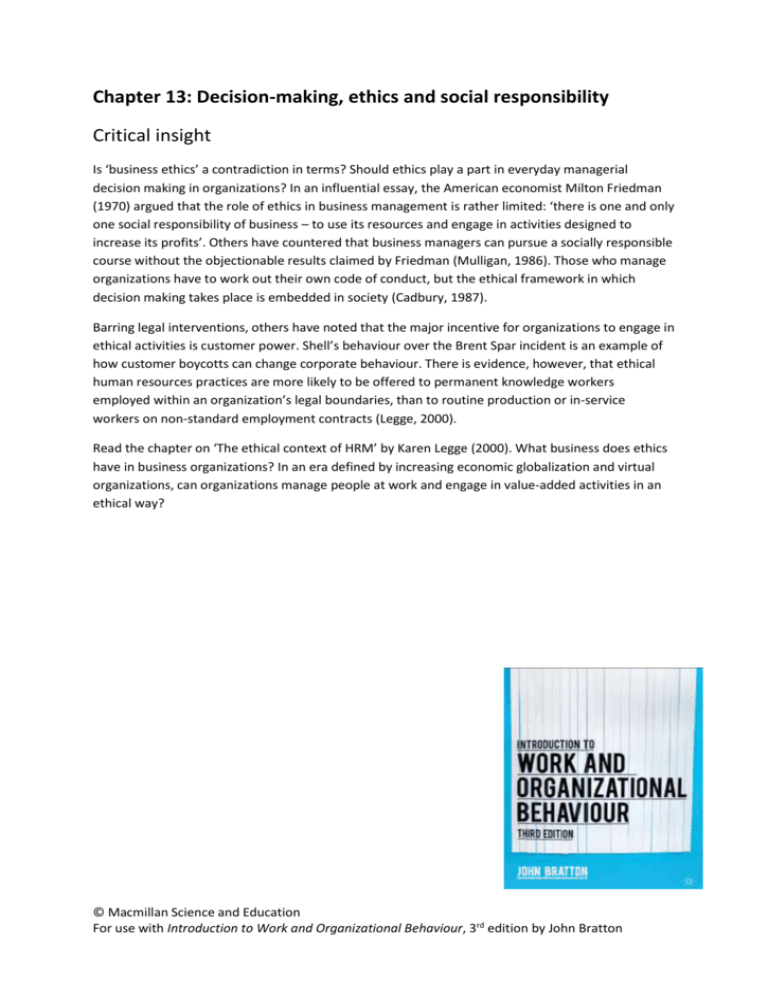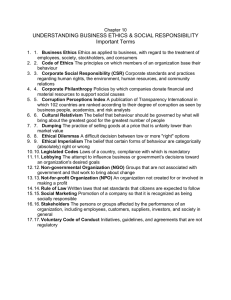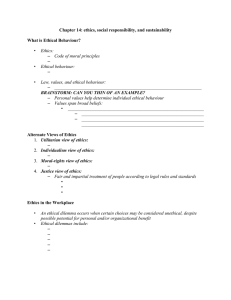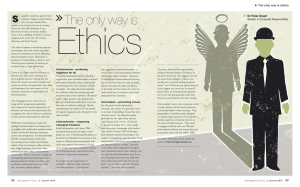Decision-making, ethics and social responsibility Chapter 13 Word
advertisement

Chapter 13: Decision-making, ethics and social responsibility Critical insight Is ‘business ethics’ a contradiction in terms? Should ethics play a part in everyday managerial decision making in organizations? In an influential essay, the American economist Milton Friedman (1970) argued that the role of ethics in business management is rather limited: ‘there is one and only one social responsibility of business – to use its resources and engage in activities designed to increase its profits’. Others have countered that business managers can pursue a socially responsible course without the objectionable results claimed by Friedman (Mulligan, 1986). Those who manage organizations have to work out their own code of conduct, but the ethical framework in which decision making takes place is embedded in society (Cadbury, 1987). Barring legal interventions, others have noted that the major incentive for organizations to engage in ethical activities is customer power. Shell’s behaviour over the Brent Spar incident is an example of how customer boycotts can change corporate behaviour. There is evidence, however, that ethical human resources practices are more likely to be offered to permanent knowledge workers employed within an organization’s legal boundaries, than to routine production or in-service workers on non-standard employment contracts (Legge, 2000). Read the chapter on ‘The ethical context of HRM’ by Karen Legge (2000). What business does ethics have in business organizations? In an era defined by increasing economic globalization and virtual organizations, can organizations manage people at work and engage in value-added activities in an ethical way? © Macmillan Science and Education For use with Introduction to Work and Organizational Behaviour, 3rd edition by John Bratton











